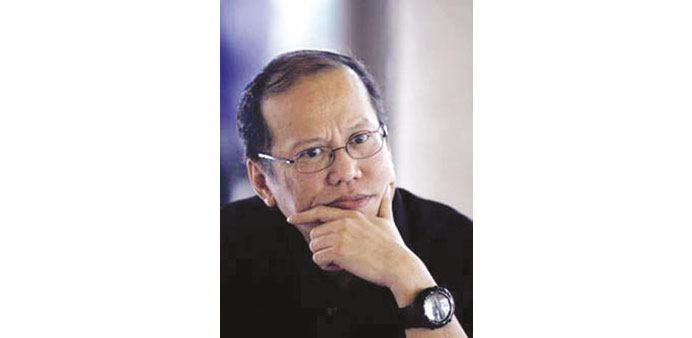By Catherine S Valente/Manila Times
China’s massive reclamation activities in the disputed West Philippine Sea (South China Sea) show the need for a Code of Conduct (COC) in the resource-rich waters, President Benigno Aquino has said.
In an interview with reporters at his home province of Tarlac, Aquino disclosed that he will push for adoption of the COC when he attends the Association of Southeast Asian Nations (Asean) summit in Malaysia later this month.
“Of course, when we go to Malaysia for the Asean meeting, we will repeat our call for a Code of Conduct. The efforts to have that started in 2002, have not succeeded,” he said.
At present, according to the president, Asean has a Declaration on the Conduct of Parties in the South China Sea (DOC) with China, but, he said, it is not enough.
“Even that DOC, in my view, is being violated now, making it imperative to push the adoption of a Code of Conduct,” Aquino added.
The president expressed hope that “formal talks in formulating such a Code of Conduct would start soon.”
China and the Philippines, aside from Brunei Darussalam, Malaysia, Taiwan and Vietnam are claimants to disputed territories in the South China Sea.The contested areas are believed to contain substantial undersea oil reserves.
The Philippines has sought international arbitration before a Netherlands-based tribunal to nullify China’s massive claims over a vast area of the South China Sea.
Beijing uses the so-called “nine-dash line” to claim ownership of almost the entire South China Sea, while the Philippines uses the UN Convention on the Law of the Sea or Unclos as basis for its claim.
It earlier rejected international arbitration proceedings to settle its territorial dispute with the Philippines, insisting instead on bilateral talks to settle the matter.
Meanwhile, the president welcomed statements of support being received by the Philippines from the international community, including a recent statement from G7 foreign ministers opposing China’s reclamation activities in the South China Sea.
“Everybody, even the claimants (to those) territorial, well, features in the South China Sea, (all of them are saying), ‘Let’s have a peaceful resolution based on international law,’” Aquino said.
He added, “We keep asserting that the problem in the South China Sea is not just a regional problem. It is a global problem because no less than 40% of world commerce (have) to pass through these waters.”
Aquino declined, on one hand, to provide “specifics of what we would need” from countries like the US, which recently signalled it would increase presence in the area as part of its military pivot.
President Barack Obama last week told Beijing to stop elbowing out other countries, mentioning Vietnam and the Philippines by name–the two countries most active in opposing China’s reportedly aggressive measures to assert its presence.Aquino explained that going into details about what Manila will seek from the US would be “practically telling the other side exactly all of our preparations. I don’t think that’s prudent.”
Before the reclamations, he noted, Beijing had advised countries like the Philippines it was enforcing a fishing ban, and that “it seems now that we have to seek permission from China to fish in our exclusive economic zone.”
Thus, Aquino said, statements of concern and warning by other countries, especially those from outside the region, are significant as they indicate that the conflict is a problem of everyone.
“So what will prevail is goodwill, as we all have committed to keep within peaceful means, we all promised to be in conformity with international law. I hope we all fulfill these,” he added.

Aquino: seeking conduct code
